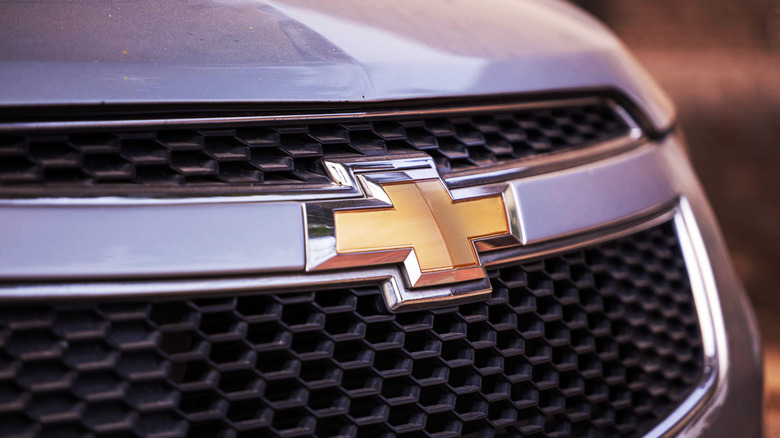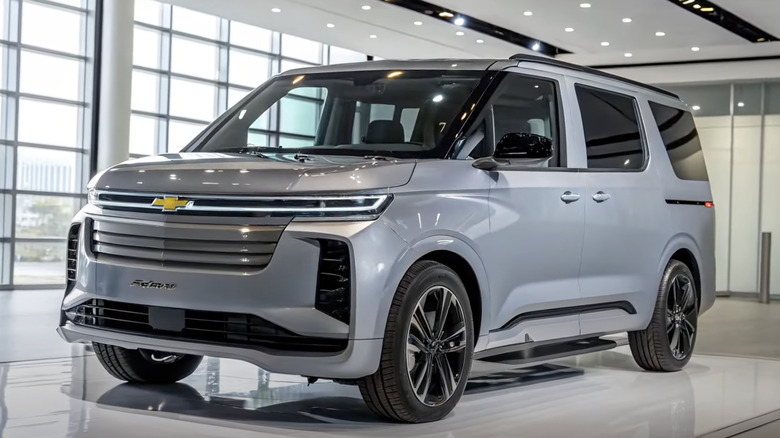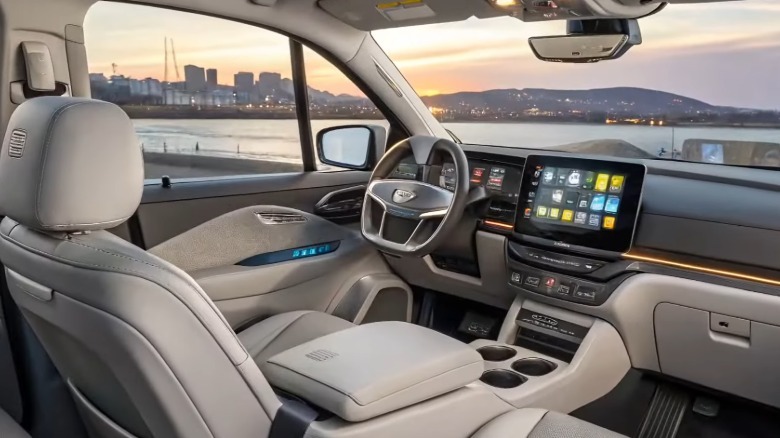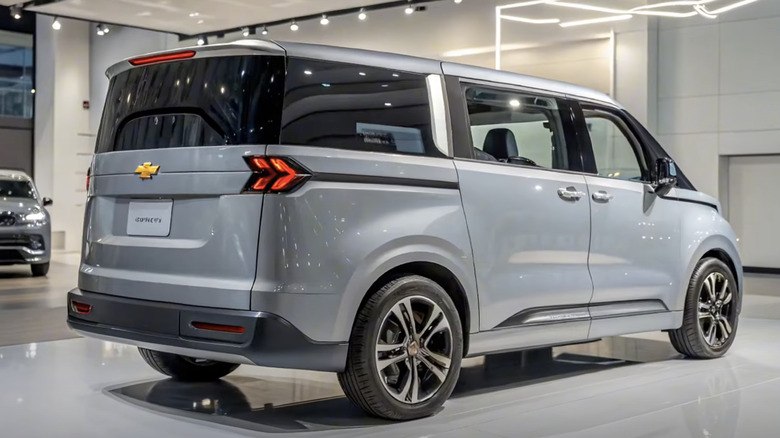Is Chevrolet Really Bringing Back The Astro Van In 2025?
The Chevrolet Astro van is a cult favorite among enthusiasts of retro vehicles. First released in 1985, the General Motors-manufactured minivan was in production for two generations and 20 years before it was officially axed in 2005. The MPV came with a sturdy form thanks to its subframe-reinforced unibody design. Such a setup made the Astro van a capable vehicle for towing more than 5,000 pounds of weight. This explains why the Astro van was well-loved as a passenger vehicle and a cargo van. The first-generation model was available from 1985 to 1994, while the second generation ran from 1995 to 2005. GM reportedly discontinued the vehicle after struggling to sell units in its final years.
Interestingly, the internet is currently buzzing with speculation about the possible return of the Chevrolet Astro van. Posts on social media platforms and various sites suggest that GM is relaunching the van in 2025. Accompanying these claims are purported renderings of a revamped Astro van, seemingly tailored for the modern driver. Much of the new interest in an Astro van stem from a wave of AI-generated concept images that circulated online late last year.
The renderings depict a reimagined version of the Astro van with supposedly aerodynamic lines and striking LED lights, as well as a contemporary interior that coincides with modern styling cues. However, despite being visually impressive, the images were not released by Chevrolet or any credible automotive design firm. Instead, they were created using AI tools designed to generate lifelike automotive concepts and spread online by social media users.
What the rumored Chevrolet Astro Van looks like
A large infotainment system draws attention inside the vehicle, while the comfortable-looking two-tone seats leave nothing to be desired due to their supposedly plush materials. Taking into account the overall design of the rumored 2025 Chevrolet Astro Van, it's easy to see why many consumers got excited about its arrival upon seeing the renders.
Adding fuel to the fire are unverifiable claims from different sources, such as the YouTube channel Auto Front, who insist that Chevrolet is releasing the revamped minivan in 2025 as part of the American brand's new offerings for the electric vehicle era. They even allege that the new-generation model will come in hybrid and all-electric variants.
A petition to bring it back gathered several hundred signatures a few years ago, and the format has been displaced by the growing number of SUVs and crossovers on the market. Despite the limited selection of new minivan models available, the segment remains a popular choice for families.. The four best-selling minivans in the United States in 2024 — The Chrysler Pacifica, Honda Odyssey, Toyota Sienna, and Kia Carnival — accounted for more than 300,000 units in sales.
Debunking the rumors and fake images
It's important to note that Chevrolet has not made any statements hinting at plans to bring back the Astro van. The company's current focus is on expanding its lineup of electric vehicles and maintaining competitiveness in popular segments such as SUVs and trucks. The Astro, which was discontinued in 2005 due to declining sales and shifting consumer preferences, does not align with Chevrolet's current product strategy.
The absence of any renewed trademarks, concept unveilings, or development leaks further debunks the idea of an Astro Van revival. For an automaker as large as GM — the parent company of Chevrolet — such a significant move would likely involve months, if not years, of marketing buildup and industry chatter. It's also fairly obvious that the renderings floating around are nothing more than mockups designed to deceive consumers.
Auto Front confirmed in a disclaimer that it used AI to create the images. But even without the disclaimer, it's easy to spot some of the telltale signs of AI image creation. For instance, the Chevrolet and Astro text branding is unintelligible, even with a closer look. The company's signature golden bowtie emblem also appears distorted in most of the images in which it appears. There is also an obvious inconsistency since some photos show a small infotainment display while others feature an ultra-wide screen on the dashboard. All these design lapses confirm the use of AI, which tends to be bad at rendering text and inconsistent with details.



